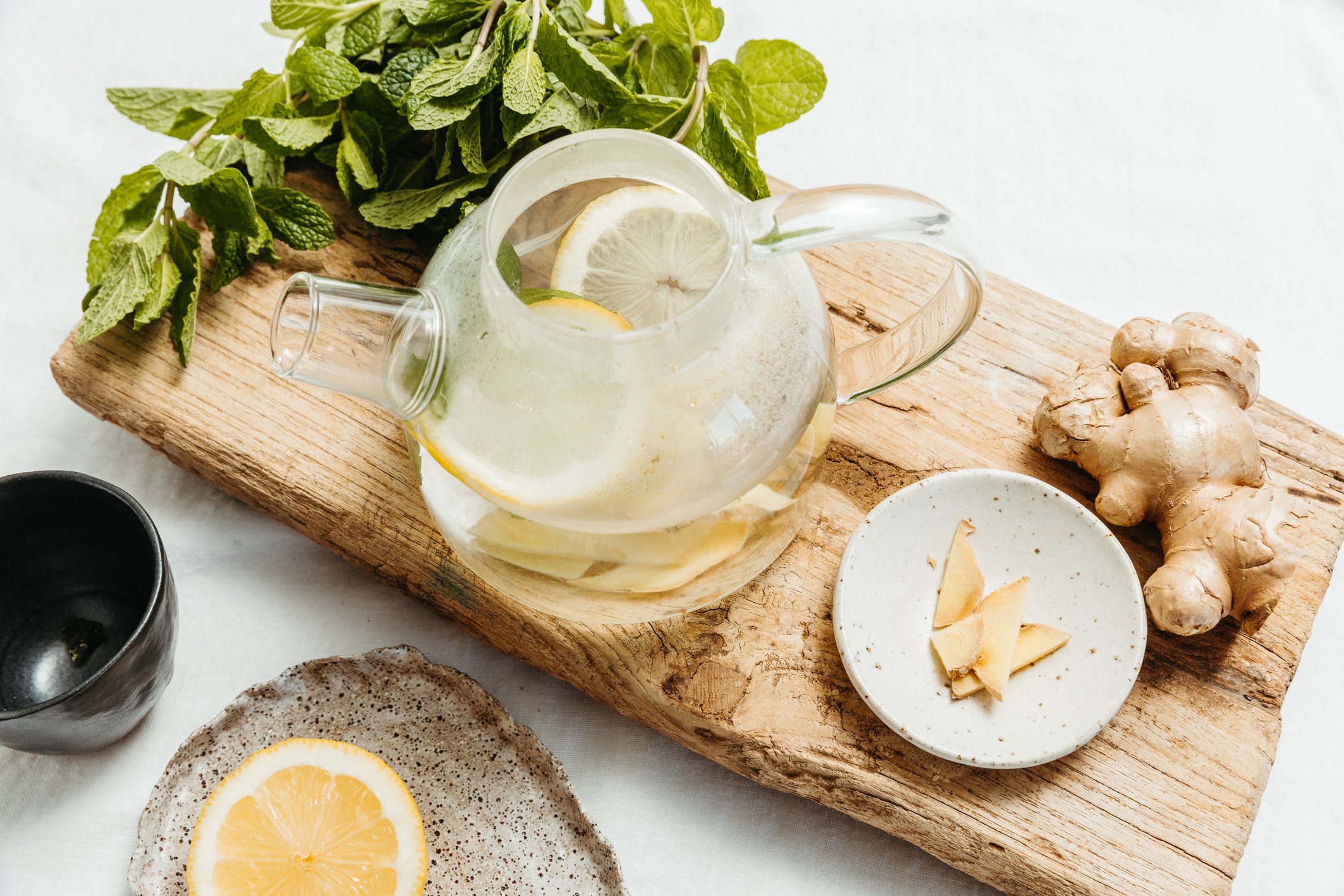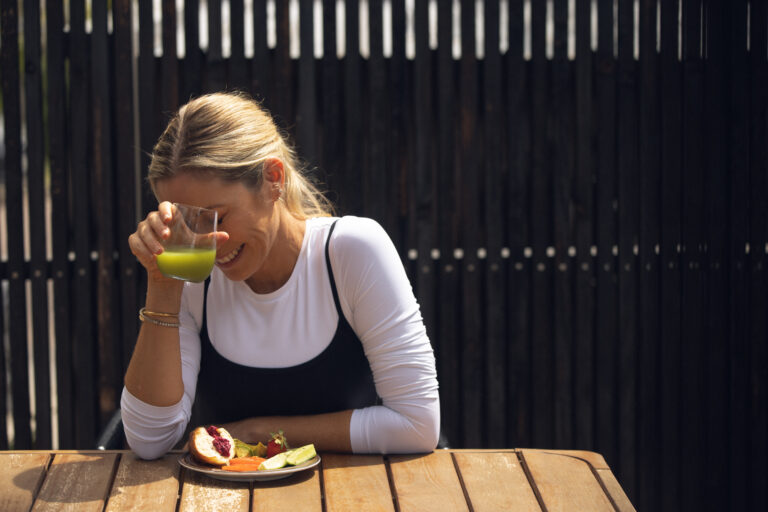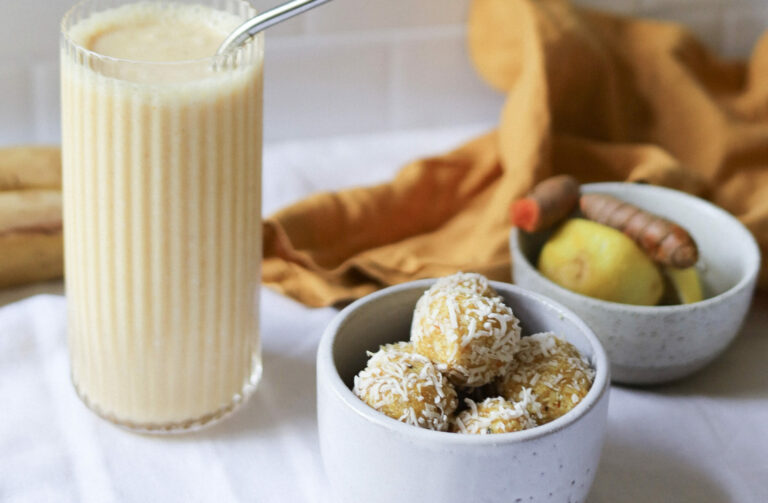By Jo Whitehead.
Detox. We’ve all heard this buzzword and know it becomes particularly prominent at the start of a new year. We see it plastered across women’s health magazines and Facebook clickbait articles reminding you of your excessive holiday partying and now, come January 1, it’s time to reset your body and reclaim your health. The word detox has some outlandish health claims attached to it and it has led to many misconceptions around how to cleanse your body, as well as many expensive products claiming to be the “cure”.
You may be left wondering – what is detoxing, and is it even necessary?
Detoxification refers to any process that reduces or removes toxins. In the body, detoxification occurs all the time, with the body converting the toxins into a non-toxic form that can be excreted from the body. Detoxification is a natural process occurring continually, but due to the modern diet and way of living and increased number of chemicals and pollutants, it is sometimes necessary to make a concentrated effort to support the body’s detoxification functions. In short, your body is already working to detox itself – so there are certain methods you can introduce to support the body’s natural ability to detox.
Supporting the liver’s natural detoxification processes comes down to more than just the foods you eat. Other factors include stress levels, physical activity, smoking, and alcohol and drug intake (both pharmaceutical and illicit drugs). A wholistic detoxification support program will include these five touchpoints:
- Daily physical activity
- Regular sweating (exercise, sauna or steam room)
- Nutrition
- Self-reflection: journalling, breathwork, relaxation exercises
- Other therapies such as massage, acupuncture, chiropractic adjustment etc.
When it comes to the foods you eat (and don’t eat), following a wholefoods approach is a safe and effective plan to give your digestive system a reset or kickstart healthier eating habits. If it is your first time “cleansing” I suggest implementing a 3 day plan before building up to a 7-10 day program. *Under the supervision of a health practitioner, there are more in depth and targeted detox protocols that may be required.
Three Day Detox Plan
Foods to remove from your diet:
- Processed foods such as frozen meals, store bought cakes, cookies, snacks, sauces, dips, processed meat such as sausages (unless they are good quality with no preservatives), bacon, salami, hot dogs, deli meat etc
- Sugar: cut out all processed and artificial sugars.
- Alcohol and caffeine
- Unhealthy fats: vegetable oils, margarines, processed and packaged foods, deep fried foods, low fat yoghurt and milk
- White refined carbohydrates: flour, bread, pasta, cereals
Foods to include in your diet:
- Fresh fruit and vegetables. Fruit provides you with fibre as well as antioxidants and other vitamins and minerals. Include all vegetables, especially brassica family (cabbage, broccoli, cauliflower) and allium family (leeks, onion, chives, spring onion, garlic) and fresh herbs and spices such as turmeric, garlic, caraway, parsley, coriander etc.
- Proteins such as fish, chicken, lean red meat, eggs, legumes, nuts and seeds.
- Healthy fats such as olive oil, flaxseed oil, avocado, nuts, seeds, grass fed butter or ghee, coconut products.
- Tea such as green, decaffeinated black, dandelion, turmeric, fennel, chamomile
- Water: 2-3L per day with added lemon juice
- Whole grains such as: brown rice, rye, quinoa, buckwheat, oats, barley
Following a safe detox plan, as mentioned above, can be beneficial for your health and is generally considered safe compared to some of the more strict diets that encourage you to remove most of the food groups and eat only a handful of foods (hello the lemon detox diet!). It is “normal” to experience some mild side effects, such as irritability, fatigue and other mood related symptoms as your body gets used to not having caffeine, sugar and other addictive substances.
*If you start to experience more serious symptoms such as dehydration, nausea, cramping or diarrhoea, it is essential that you stop the detox and seek medical advice. Detoxing is not recommended for a woman trying to fall pregnant, currently pregnant or breastfeeding, or if you have a health condition such as diabetes, heart or kidney condition.
Three Day Detox Menu
Start the day with a 600ml drink of water with lemon juice.
Breakfast options:
- Vegetable juice (think colourful vegetables such as beetroot, celery, cucumber, spinach etc) and 2 x eggs with wilted spinach and fresh tomato
- Fresh berries with coconut or Greek yoghurt and walnuts
- Overnight oat & chia bircher with fresh seasonal fruit
Lunch options:
- Miso soup
- Rice paper rolls (with no sugary, processed sauces)
- Quinoa & chicken salad
Dinner options:
- Vegetable soup
- Lentil bolognese with brown rice pasta
- Shepherds pie with sweet potato mash & steamed greens
Snack options:
- 1 cup berries with 1/2 cup walnuts
- Banana or apple drizzled with almond butter
- Boiled egg
- Veggie sticks & hummus
References:
Hechtman, L. (2014). Clinical Naturopathic Medicine. Churchill Livingstone.
Osiecki, H & Meeke, F. (2005). The Encyclopedia of clinical nutrition – volume 2. Eagle Farms. Bioconcepts.
Rakel, D. (2018). Integrative Medicine. Philadelphia. Elseiver.
Romilly E. Hodges, Deanna M. Minich, “Modulation of Metabolic Detoxification Pathways Using Foods and Food-Derived Components: A Scientific Review with Clinical Application”, Journal of Nutrition and Metabolism, vol. 2015, Article ID 760689, 23 pages, 2015. https://doi.org/10.1155/2015/760689




